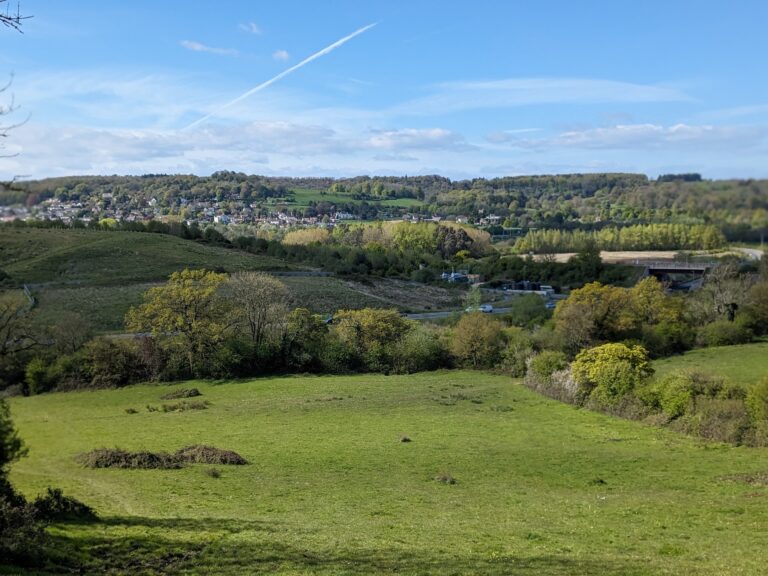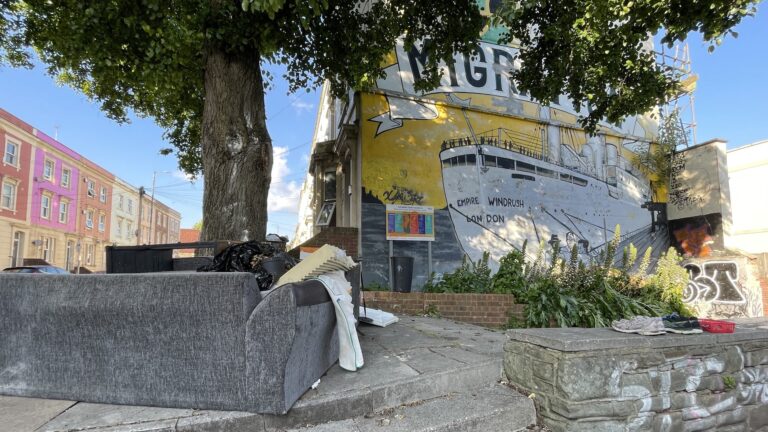‘Hypocritical and unacceptable’: Leading climate academics call out Bristol Uni for accepting fossil fuel funding

Photo: Mat A
“Oil and gas funding has no place at the University of Bristol.”
Dr Katharina Richter is a lecturer in climate change, politics and society at Bristol University. She and other top climate academics at the university have criticised the institution for accepting millions of pounds-worth of funding from the fossil fuel and mining sectors in recent years.
“These companies are associated with quite severe human rights abuses and some of the world’s worst environmental disasters related to fossil fuel extraction,” she adds.
Bristol has taken £3m from oil, gas and mining companies since 2017, according to a recent report by investigative outlet openDemocracy. More than £200,000 of this funding came from BP and Shell plus £500,000 from Total, Equinor, Chevron and Petrobras.
Significant funds have also come from BHP, an Anglo-Australian mining company that is being sued over its role in the Mariana dam collapse, Brazil’s worst environmental disaster.
‘A material threat to our planet’
Dr Oscar Berglund, a senior lecturer in international policy who researches climate change activism, says taking money from the fossil fuel industry is “hypocritical and unacceptable”. He says that fossil fuel companies “are a force for bad in the world and the university should not be engaging with them”.
Richter, while acknowledging the university’s significant efforts to become carbon neutral by 2030, agrees: “Some might say that if we want the fossil fuel and mining sectors to decarbonise, we need to get them onboard and involved with the type of cutting-edge research that is happening at Bristol. But the vast majority of profits in the fossil fuel sector are still coming from burning fossil fuels that are heating the planet.”
“The efforts of the fossil fuel industry to legitimise their disruptive behaviour is nothing new,” she says. “Greenwashing is definitely part of that and that is what we are seeing here with these companies giving funding to the Higher Education sector.”
In 2020, Bristol University announced that it had divested from all fossil fuel investments. Robert Kerse, Bristol’s then chief operating officer, said the resources owned by fossil fuel companies posed “a material threat to our planet”.
But since this announcement, the university has gone on to accept over £1m in funding from fossil fuel and mining companies.
One academic, who wanted to remain anonymous, says Bristol University’s vision to embed sustainability in everything that they do is “rendered meaningless” if it “continues to collaborate in the continued exploitation of fossil fuels”.
Bristol University says that its work with a “small number of organisations within the fossil fuel sector” primarily focuses on the “progressive side” of their businesses, focussing on lower carbon futures.
Research has been carried out into the exploration of copper deposits, for example, which the university says are essential as conductors to transport renewable electrical power.
Even if this money is used for sustainable projects, Richter says that there still needs to be an “open and democratic” debate on campus about whether to accept research funding that comes from the “progressive side” of fossil fuel and mining companies.
Dr Alix Dietzel, associate director of the Cabot Institute and a senior lecturer in climate justice, says fossil fuel funding could be beneficial if used to develop green technologies, but she adds that it should be “explained how this funding aligns with climate commitments that the university has agreed to”.
“There should be very clear transparency and communication of why those donations are taken,” she says.
Is this a national issue?
A recent investigation by openDemocracy found fossil fuel companies have pumped more than £147m into British universities since 2016/17.
More than a dozen universities admitted taking advice on degree courses from oil and gas companies. One university even had discussions with an oil company about how to push back against “anti-oil rhetoric”.
Bristol University, which was the first in the UK to declare a “climate emergency” in 2019, was also found to have signed research contracts which require the institution to give some fossil fuel companies “an opportunity to oppose” the release of information under the Freedom of Information Act.
This means that if a journalist or member of the public wants to find out more information about the funds being given to the university by the likes of Shell and BP, their request will likely be flagged up with the fossil fuel company involved.
Overall, Bristol was ranked in the top 10 universities in the UK for the amount of money taken from oil, gas and mining companies in recent years.
In comparison, the University of the West of England (UWE) has not received any fossil fuel funding over the same time period. “Sources that do not align with our values would be declined,” a spokesperson told the Cable.
A Bristol University spokesperson said: “We’re working towards becoming net zero by 2030 and continue to work with industry and other sectors using research to help reduce carbon emissions.
“The Cabot Institute for the Environment is at the forefront of world-leading research into environmental challenges and our expert academics provide advice and guidance to decision-makers on an international, national and local level.”
In response to the finding that Bristol University consults with fossil fuel companies before releasing information to the public, a spokesperson said that funders’ views are taken into account, but that the university has “ultimate responsibility for deciding what information is disclosed”.
Independent. Investigative. Indispensable.
Investigative journalism strengthens democracy – it’s a necessity, not a luxury.
The Cable is Bristol’s independent, investigative newsroom. Owned and steered by more than 2,500 members, we produce award-winning journalism that digs deep into what’s happening in Bristol.
We are on a mission to become sustainable, and to do that we need more members. Will you help us get there?
Join the Cable today











